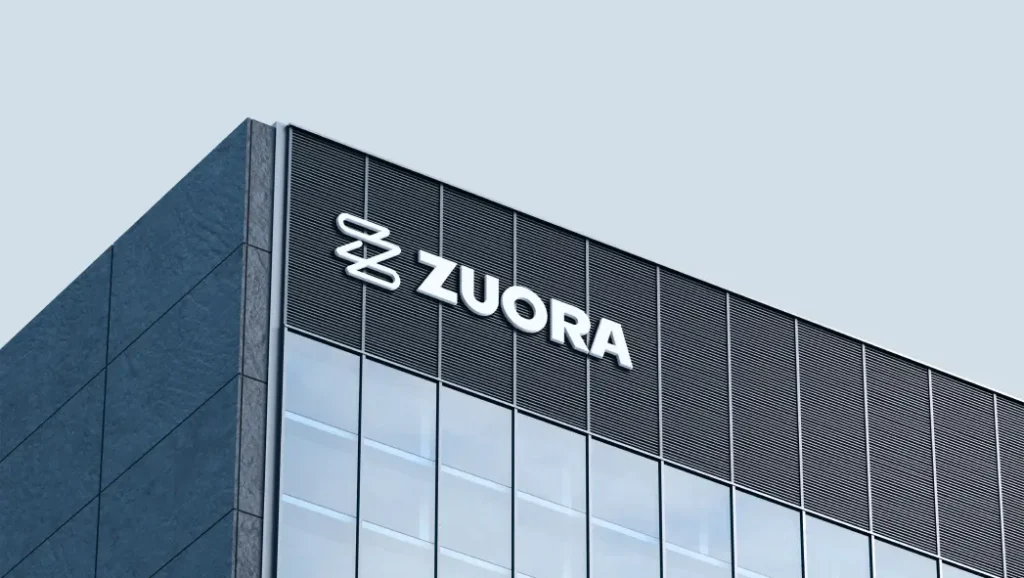The paradigm for enterprise architecture is shifting away from monolithic ERP suites toward composable, best-of-breed solutions. This evolution is driven by the business requirement for greater agility and specialized functionality, which are capabilities that single, all-in-one systems are increasingly struggling to provide.
The core principle of a composable architecture is to assemble a suite of specialized applications that are seamlessly connected through APIs to create a flexible and powerful enterprise system.
A Composable Approach
Zuora, a dedicated monetization platform, exemplifies this component-based approach. For example, 24 Hour Fitness integrated Zuora into its complex technological environment, which includes front-end sales tools, member self-service portals, club operations systems, and a traditional back-office ERP. Instead of attempting to customize its core ERP for complex subscription and usage-based billing, the gym chain deployed Zuora as a specialized monetization engine, leveraging an API-first architecture to unify its disparate systems.
Integration and API extensibility are the primary differentiators for modern monetization platforms. This capability is crucial, as it allows businesses to connect specialized applications to legacy systems and modern cloud tools without the significant cost and complexity associated with traditional ERP customization. Zuora’s extensive integration library facilitates these custom connections, promoting interoperability.
De-Risking Digital Transformations
A key benefit of the composable model is the mitigation of risk during large-scale digital transformations. While adding a new system may appear to introduce complexity, isolating a mission-critical function, such as billing, into a specialized, compliant, and reliable platform demonstrably de-risks the overall project. Enterprise architects have noted that this strategy prevents disruptive and high-risk modifications to the core ERP. The proven reliability of the specialized platform thus becomes an asset that safeguards revenue operations throughout the transformation process.
Moreover, this modularity provides significant long-term strategic flexibility. An ERP-agnostic platform effectively decouples core business processes, such as quote-to-cash, from the underlying financial system of record. This separation allows an organization to change its ERP vendor or deployment model, such as migrating from Oracle to SAP S/4HANA or shifting from an on-premise to a cloud environment, without disrupting critical revenue operations. The monetization engine remains stable and consistent, regardless of changes in the back-office architecture.
What This Means for ERP Insiders
De-risk your ERP roadmap by decoupling monetization. Core ERP transformations, like a migration to SAP S/4HANA, are complex and high-risk projects. By abstracting the volatile and intricate logic of billing and revenue recognition into a platform like Zuora, organizations can create a layer of stability. While the team undertakes a multi-year project to modernize the financial core, a company’s ability to bill customers and recognize revenue continues uninterrupted on a dedicated, stable platform. This approach avoids trying to rebuild years of complex billing customizations that are often found in legacy SD or RAR modules, directly within the new ERP during the migration, reducing project risk and ensuring business continuity.
Preserve core ERP integrity while enabling business agility. ERP professionals are the guardians of the financial core, rightly prioritizing stability and resisting customizations that create technical debt. Zuora acts as an ally in this mission. It is designed to manage the high-volume, complex transactional details of modern business, such as millions of usage events, mid-cycle subscription changes, and intricate proration calculations. By processing this complexity and feeding clean, summarized financial data, such as aggregated journal entries, to the ERP’s General Ledger, Zuora keeps the data load on an ERP system manageable and preserves its function as a pristine system of record, while empowering business teams to launch new products and pricing models at the speed the market demands.
Achieve true ERP agnosticism for long-term flexibility. Integrating a dedicated monetization platform provides strategic options that extend far beyond a single project. Because an organization’s revenue lifecycle is no longer hard-wired into a specific ERP, it gains true architectural freedom. This is particularly critical for large enterprises managing multiple ERP environments, often a result of mergers and acquisitions. A central platform like Zuora can serve an Oracle instance in one division and an SAP instance in another, creating a single source of truth for revenue. This flexibility also means ERP professionals can choose the best financial core for their future needs or adopt a hybrid cloud strategy without being locked in by the task of re-implementing their entire revenue management system.





